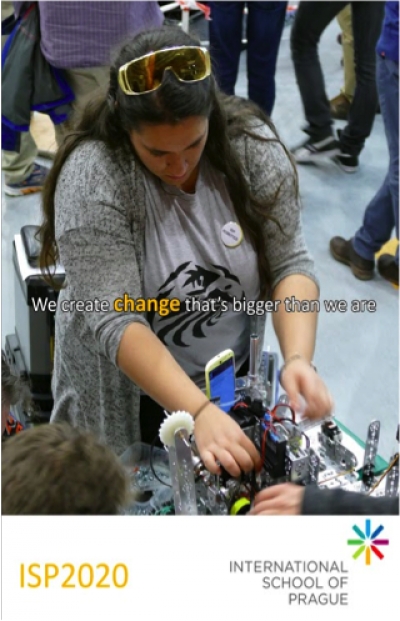Many schools work hard to bring inquiry learning to their students - but what if we worked just as hard to see everyone in our community digging into inquiry projects that help us figure out what works (and what doesn’t) at ISP?
What is curiosity? What does it look and sound like? How can we nurture it? Among numerous other professional inquiries conducted by all ISP teachers, more than a fifth of our faculty want to know how curiosity can truly drive what and how we learn.
A Grade One teacher, wondered what conditions promote and spark curiosity in our learners. She brought the challenge to colleagues in her LIFT (Learning Inquiry Focus Team), which are school-wide self-formed teacher groups that explore the research behind burning questions about teaching and learning, and then put the results into practice. She focused on figuring out how we might nurture curiosity in six and seven year olds through a series of experiments.
The Grade One teacher began by observing what stimulated her students’ curiosity. She wondered if students are really curious during their free choice time, or whether they are just making arbitrary choices. She reframed “Choice Time” to “Curiosity Time” and started asking questions to challenge her students to think differently: “What are you trying to figure out?”, “What are you finding out so far?”, “What makes us curious?”.
Now, she provides more open-ended curiosity time, with students pursuing their own questions and interests and begging for more. One small group of students is working together on aeroplane designs for the future. These first grade students reserve time in the art room to ask questions and get advice about their designs, and research how solar panels might power a commercial aircraft.
The Grade One teacher constantly challenges herself to understand the impact of her action research on her students; students seeing their teacher being a curious researcher is an unexpected benefit. The learning about our ISP2020 strategy, Curiosity drives what and how we learn, uncovered by Kathy and her students is visible through the pictures, quotes and questions that they post.
John Dewey says: “We learn from reflecting on experience”. Reflection is at the heart of professional collaboration, but only if it drives action in the classroom. Kathy notices how her meetings with her Learning Inquiry Focus Team (LIFT) are invaluable for considering evidence. “We are a group of nine teachers considering five different questions about curiosity,” she says. “When we use the Considering Evidence Protocol related to one colleague’s questions, it really pushes all of our thinking about next steps as drawing possible conclusions.”

